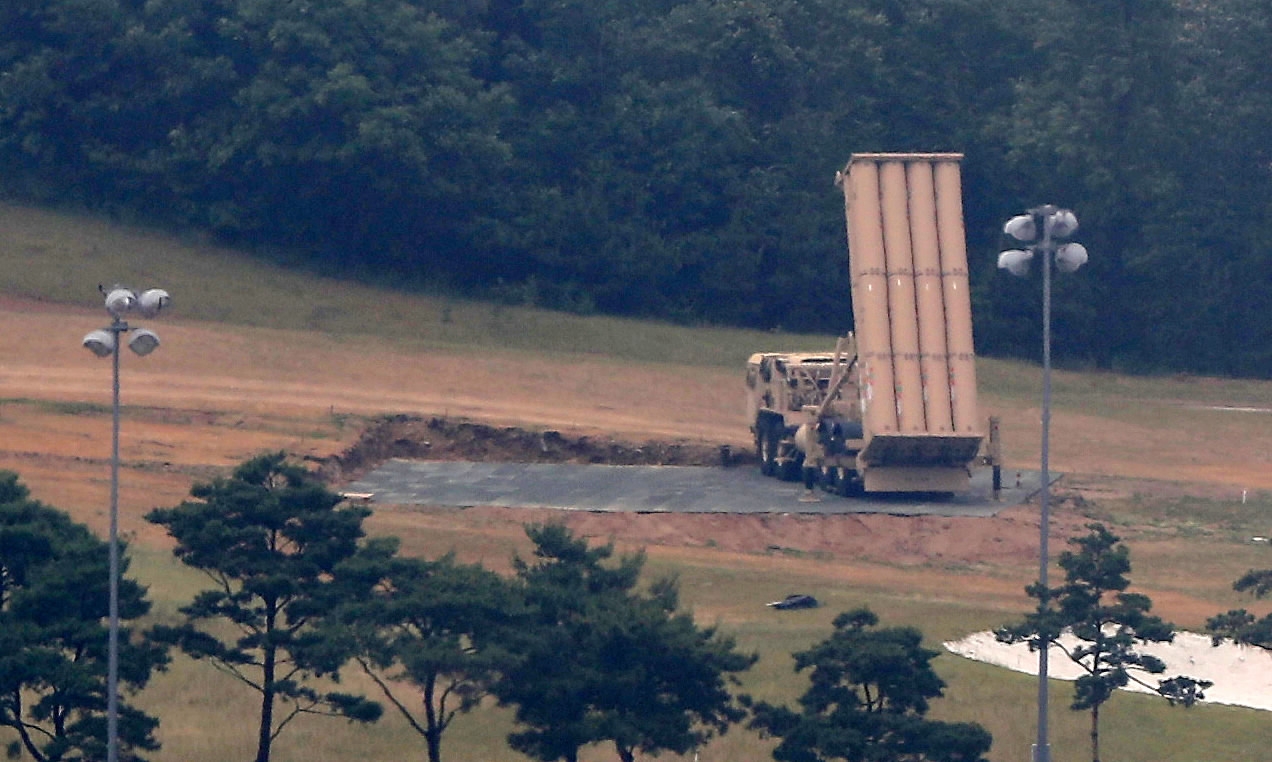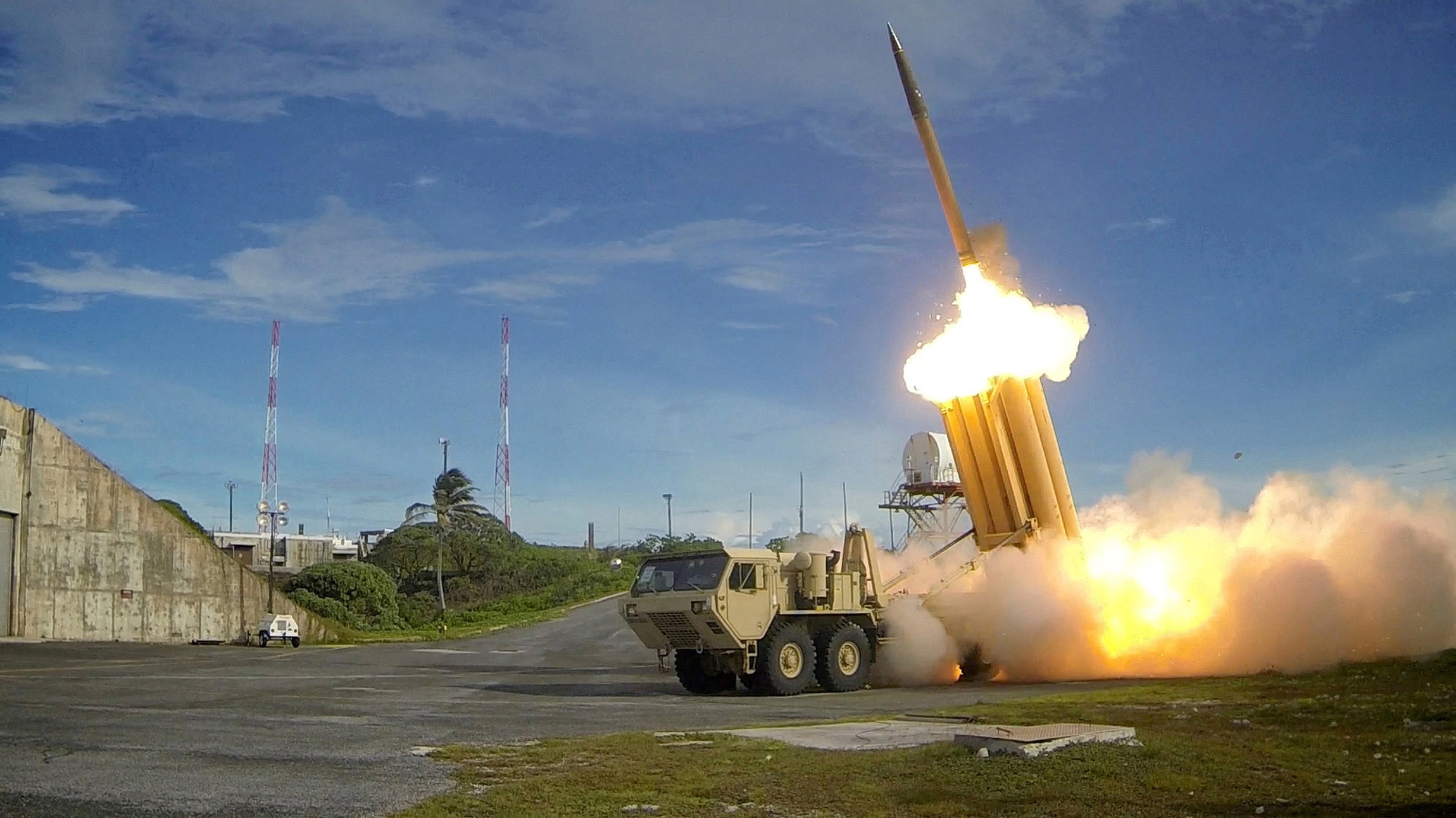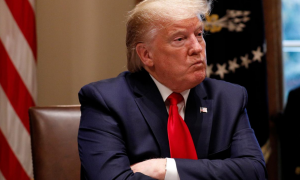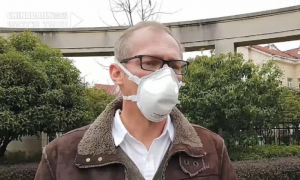Thursday marks the first anniversary since Washington and Seoul announced to deploy the Terminal High Altitude Area Defense (THAAD) missile defense system in Seongju county in the southeastern region of South Korea. Hundreds of people promised on the special occasion that their protest will not end until the system is withdrawn.
Seongju county, once a Buddhist pilgrimage site for those seeking peace and enlightenment, has now become a center of protest ever since it was designated as a site for the missile shield installation, with people from all over the country coming here and demanding the removal of the THAAD system.

VCG Photo
Hundreds of people on Wednesday night gathered at an open field beside the county office building and enjoyed music performances which were arranged to console the warriors who have devoted themselves to the arduous anti-THAAD protests in the past year.
"Despite the sweltering heat having the day's temperature high of 37-38 degrees Celsius, many people came here again," Xinhua News Agency reported citing a moderator of the anti-THAAD music concert wishing for peace in Seongju and the Korean Peninsula.

The first elements of the US-built THAAD arrive at Osan US Air base in Pyeongtaek, south of Seoul, on March 6, 2017. /VCG Photo
"One year has passed since we began (the anti-THAAD rally). One day (of the rally) has never been missed, rain or shine, and in the sweltering heat or the biting cold," said the moderator, behind whom a placard was hung with a slogan that reads "Seongju will never give up peace."
Kyung Im-do, 78, said she feared the peace and serenity of her village would be lost forever. "The THAAD makes too much noise, we can't live here anymore, my son was going to come back but now he won't," she said.
"I will keep on fighting until the THAAD system has been removed from the Korean Peninsula and so will people in this country who love peace," said Chul Ju-park, one of the protesters.

VCG Photo
China and Russia have strongly opposed the THAAD system, which was deployed under the excuse of countering Pyongyang's growing military threats, as the system's powerful radar can probe deep into the two countries' territories.
Last week, Chinese President Xi Jinping and his Russian counterpart Vladimir Putin both expressed opposition to the deployment of THAAD during their meet, saying it will damage security interests of the two countries and break a strategic balance in the region.
"Beijing and Moscow are steadfastly opposed to the THAAD deployment and seriously suggest that relevant countries stop and cancel the installation," Xi said earlier in an interview with Russian media.

VCG Photo
Meanwhile South Korea's tourism industry starts to feel the backlash of the deployment of the system, with fewer Chinese tourists visiting the country.
The Korea Tourism Organisation (KTO) predicted there could be 4.7 million fewer foreign tourists this year than in 2016, a drop of about 27%, while visitors from China made up 46.8% of tourists in South Korea last year.
"With the current trend, South Korea's tourism industry could enter a long-term depression," an unnamed KTO official told Yonhap News Agency.
A THAAD battery is composed of the radar, six mobile launchers, 48 interceptors and the fire and control unit. So far two mobile launchers were deployed to the golf course in Seongju county and the other four were transported to a US military base nearby, which was not reported to South Korean President Moon Jae-in.







